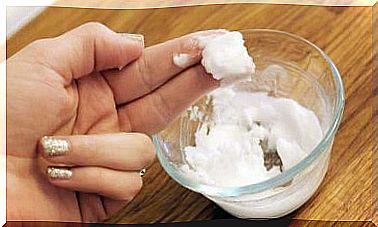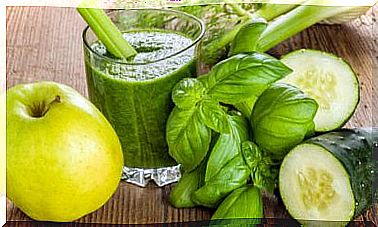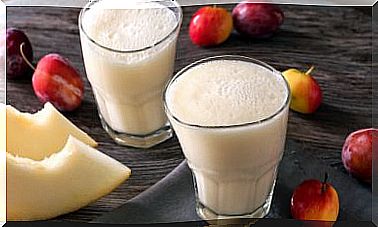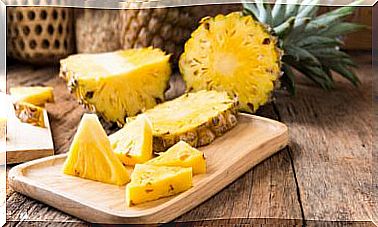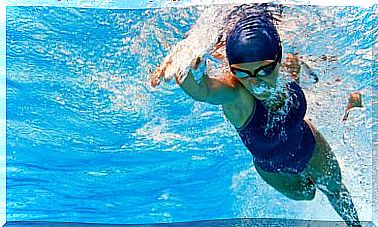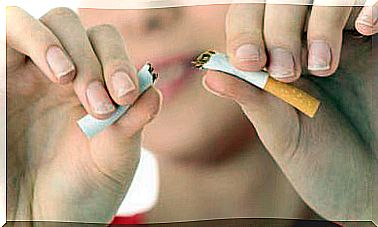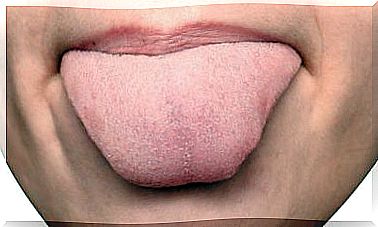Natural Remedies For Hypothyroidism
To promote the condition it is very important to eat a balanced diet, rich in fruits and vegetables and low in fatty products, as well as animal proteins, which can be substituted for vegetables
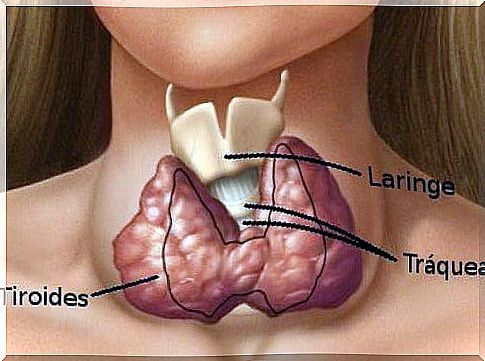
First, we will explain the function of the thyroid gland. It is responsible for producing hormones that control how each cell uses energy. This process is called metabolism. For their part, the hypothalamus and the pituitary gland are responsible for controlling the normal secretion of thyroid hormones. When these functions are not performed well, disorders appear, such as hypothyroidism.
This disorder is more common in women and people over 50 years of age and consists of a decrease in the levels of thyroid hormones in the blood plasma. According to the US National Library of Medicine, it is associated with symptoms such as:
- tiredness and exhaustion or muscle weakness
- the feeling of cold
- unexplained weight gain or loss and anxiety
- depression or other emotional imbalances
In addition, there are also other more subtle symptoms that can help us detect this difficult to diagnose disease:
- pale or yellowish complexion
- fluid retention
- Hair loss
- lack of outer edges of the eyebrows and very dry skin
Diet for hypothyroidism
If you suffer or suspect that you may have hypothyroidism, the first thing you should do is consult a health professional for advice. The Spanish Heart Foundation points out that, although there is no specific diet for hypothyroidism, it is possible that the doctor recommends the consumption of some foods in case of iodine deficiency, among them :
- Parsley
- Eggs
- Garlic (rich in iodine and selenium)
- Ginger
- Apricots
- Bananas
- Almonds
- Watercress
- Cucumbers
- Green peas
- Apples
- Figs
- Iodized salt or sea salt
- Sea foods and algae rich in iodine such as kelp, fucus, spirulina
- Fish
- Seafood
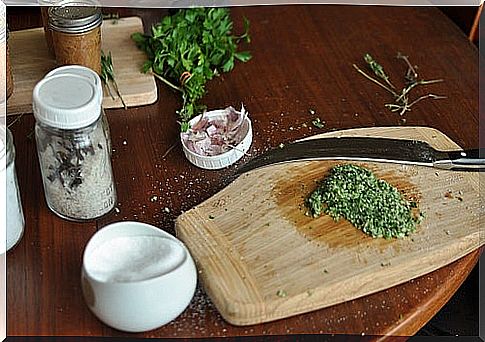
Possibly, it costs us to take the seaweed, therefore we could choose to consume it in tablets. In addition, we recommend that they are ecological so that they do not contain toxic substances. In reality, it seems that algae not only provide us with iodine, but also many other essential minerals and amino acids that would be beneficial to our body.
Also, another option would be to prepare a seaweed salt ourselves. Thus, we should grind or pass through the mortar sea salt and algae of our choice, in addition to some aromatic herbs. Afterwards, we mix everything together and keep it tightly closed. The salt will act as a preservative. Then, we can use it in the same way as normal salt when seasoning soups, stews, etc.
Food you could avoid
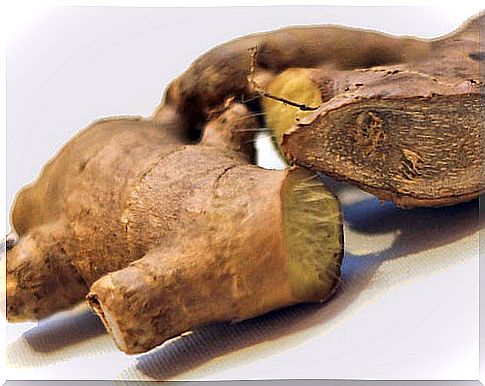
If you suffer from hypothyroidism characterized by a deficiency of iodine, it would be advisable that you avoid some foods that could hinder or block the absorption of this mineral, such as:
- Purple and curly cabbage
- Brussels sprouts
- Cauliflower
- Broccoli
- Kale
- Spinach
- Arugula
- Watercress
- Cabbage
- Broccoli
- Unfermented soybeans
- Nuts, especially peanuts and pine nuts
- Peaches and pears
- bean
- lime
- Radish
- Raw onion
- Processed foods
- Refined foods
- Tap water
Natural medicine
Alternative medicine experts usually recommend treating symptoms with homeopathy (Kalium Iodatum or Magnesium Phosphoricum) or taking trace elements (Gold, Iodine, Lithium, Manganese-Copper or Zinc-Copper).
On the other hand, when it comes to emotional issues, they might recommend consuming Bach flowers. In some cases of hypothyroidism, Wild Rose (Wild Rose) is recommended, a flower that would be used for cases of resignation, apathy and lack of interest.
It is worth noting that the effectiveness of these natural remedies has not been proven by any scientific study. Therefore, we recommend going to the doctor to receive the proper diagnosis and treatment for hypothyroidism.
Other tips
First of all, keep in mind that exercising would be a natural stimulant of the thyroid gland, which is why it would be good to practice it regularly.
Hydrotherapy is a therapy with water at different temperatures in different areas of the body, which is believed to help stimulate and relax the body in a natural way.
Finally, some people argue that acupuncture might help regulate thyroid function. We should attend several sessions to get results, although we have not found scientific endorsement in this regard.
In any case, the first step in treating hypothyroidism is to visit your trusted doctor so that, after diagnosis, they can evaluate the best treatment adapted to your physical condition and your needs.
